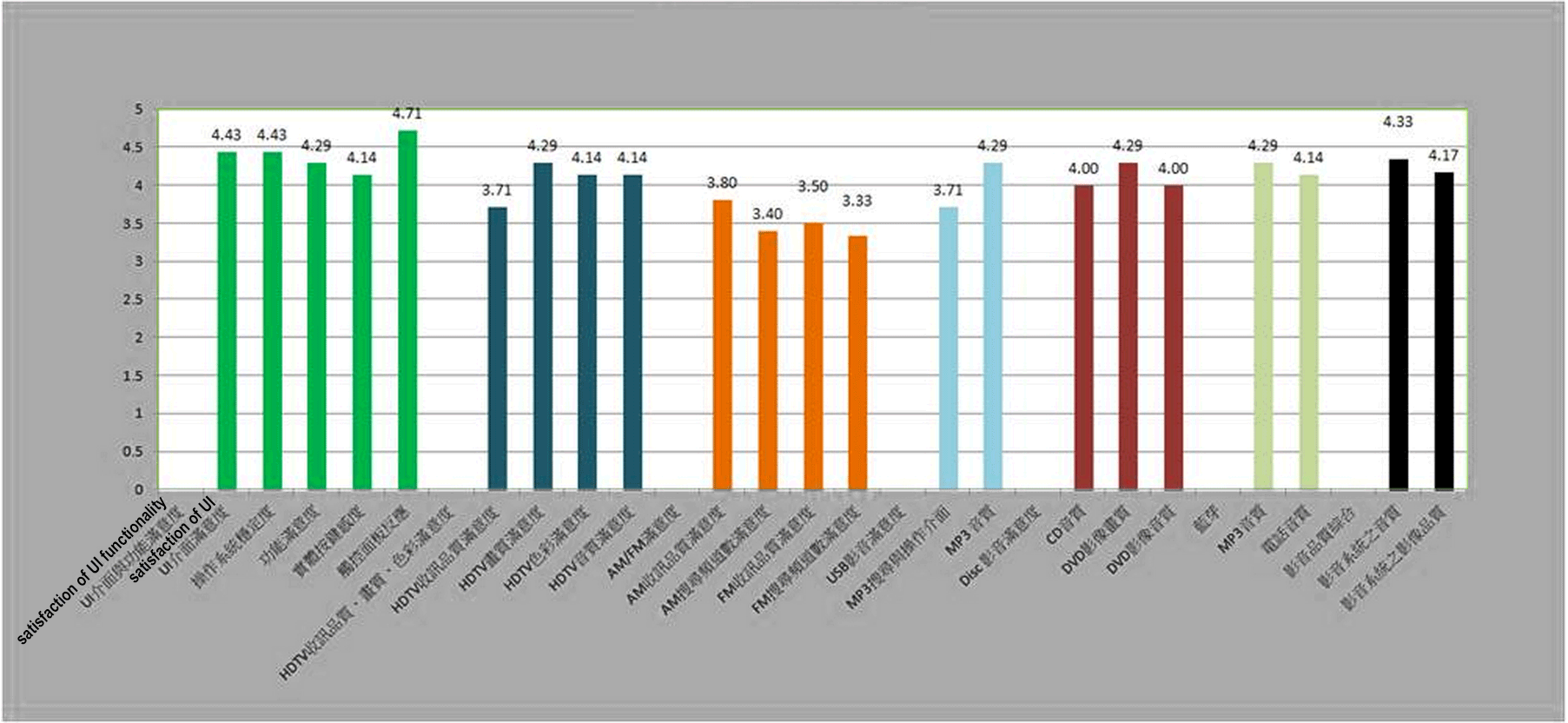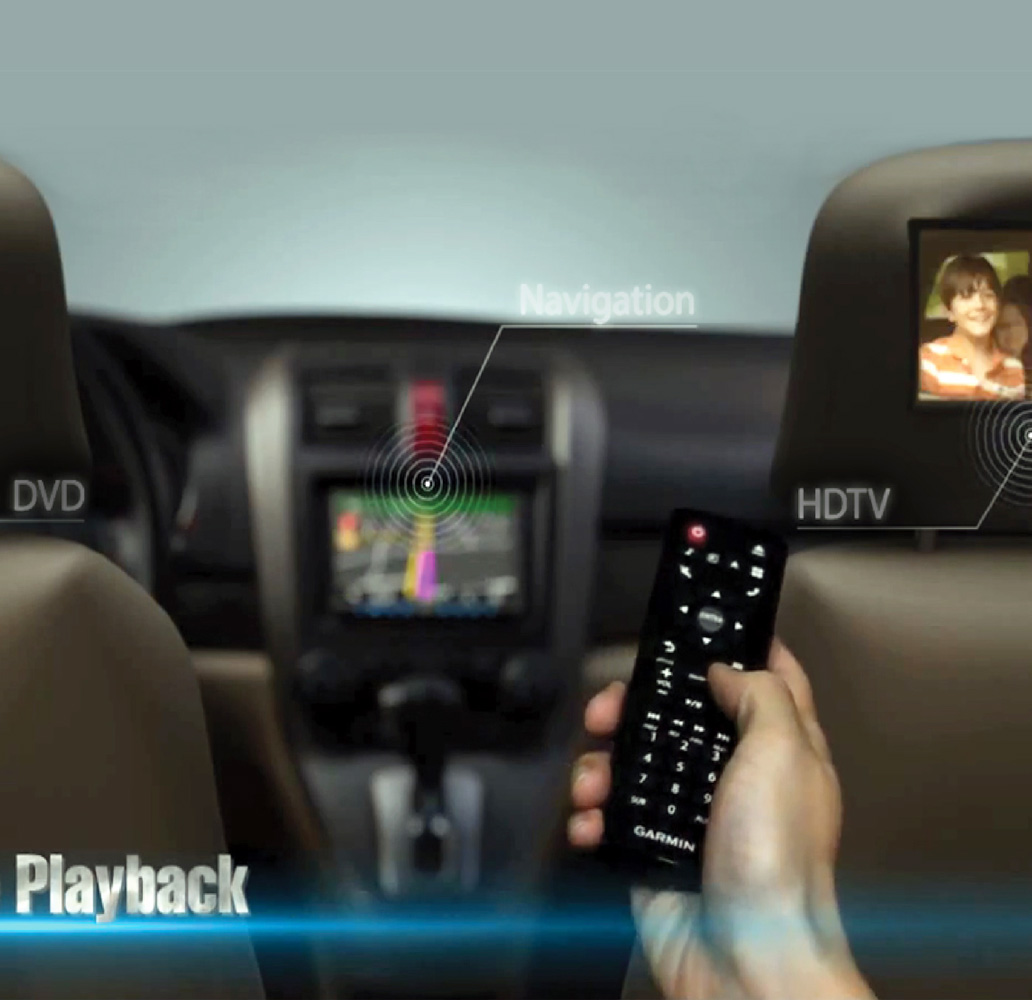The Garmin Navtune 7190 is a car multimedia system with multiscreen functionality. Driver and rear passengers can control three individual displays through touchscreen, voice control or a remote controller.
It offers exclusive three-zone entertainment experiences, featuring multimedia functions, including mobile TV and multimedia playback, Garmin navigation, safe hands free operation of the phones, iPhone compatible music players, etc.
My task was to research and define the human-machine interactions and communicate them to the engineers for acoustics, displays and electrics as well as to the marketing team, the project managers, programmers and visual designers.
Project backgrounds and objectives
For entering after-markets of automotive parts and accessories, Garmin decided to develop its first new in-car navigation multimedia system with three-zone independent entertainment units, to be launched on the Taiwanese market.
Process
Discover & Scope
Understand users, business and technologies. Scope product positions.
Design
Design hardware and software UX/ UI
Prototype & Evaluate
Build prototypes and systems for quick evaluation
Deliver & Refine
Launch and refine
Discover & Scope
Understand users, business and technologies; then Scope the product position
Preliminary and overall studies are substantial, since the idea of three-zone sensory entertainment experience is completely new to the market and also to the users. Through working with the marketers, project managers and engineering teams, I collected comprehensive thoughts from a wide range of perspectives. Then, together with referring to data from market surveys and earlier user interviews, I concluded the product statement, which defined features and specifications of Garmin’s three zone navigation multimedia system for the after-market.
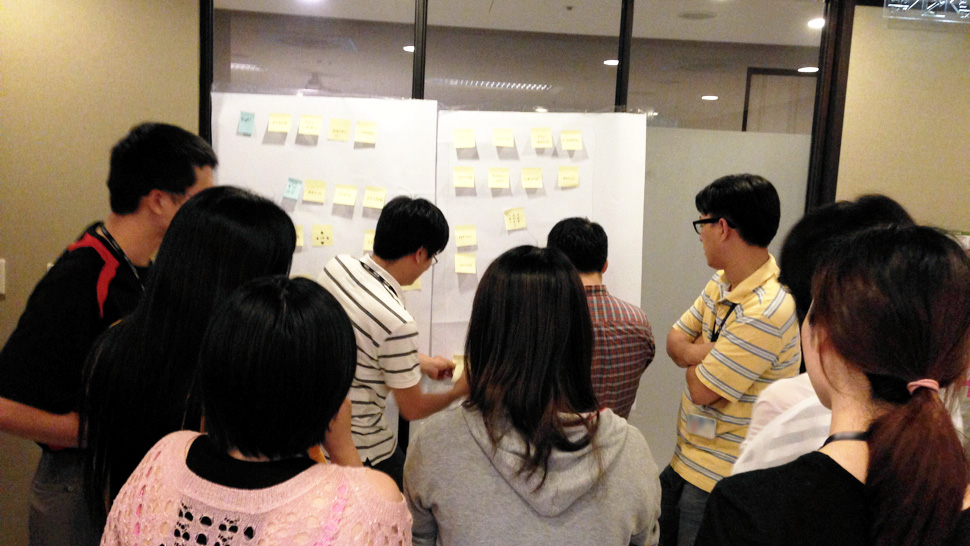
Design
Design hardware and software UX/ UI
User experiences were outlined across hardware and software — from the system’s hard keys, IR remote controllers, front and rear seat displays with new UI functions, to the details such as touchscreen effectiveness, media format research and media playback control. My jobs mainly included:
- IR remote controller usability — ensuring functionality, when merely one controller has to operate three panels
- controller key allocation
- optimising and simplifying the interfaces in particular under hardware constraints and driving scenarios
- detailed interaction design for Radio, digital TV and DivX player functions
interaction design for peripherals such as Garmin driving recorder - ASR (automatic sound recognition) interaction design
- ensuring design can be mass produced in time
All design works were documented, which was intended for inner communications and review across different teams/ departments in Taiwan and the headquarter in U.S.
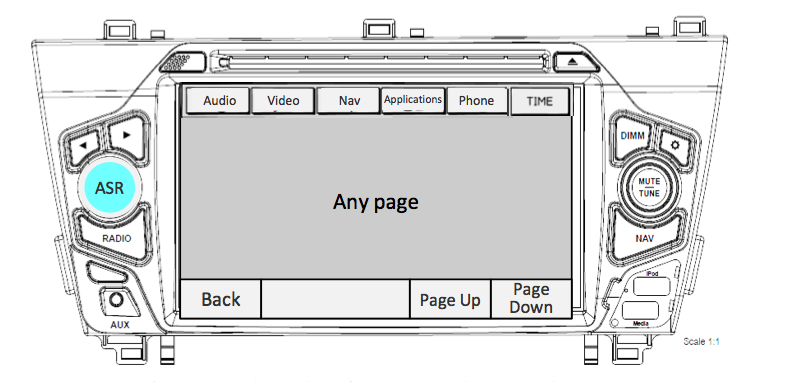
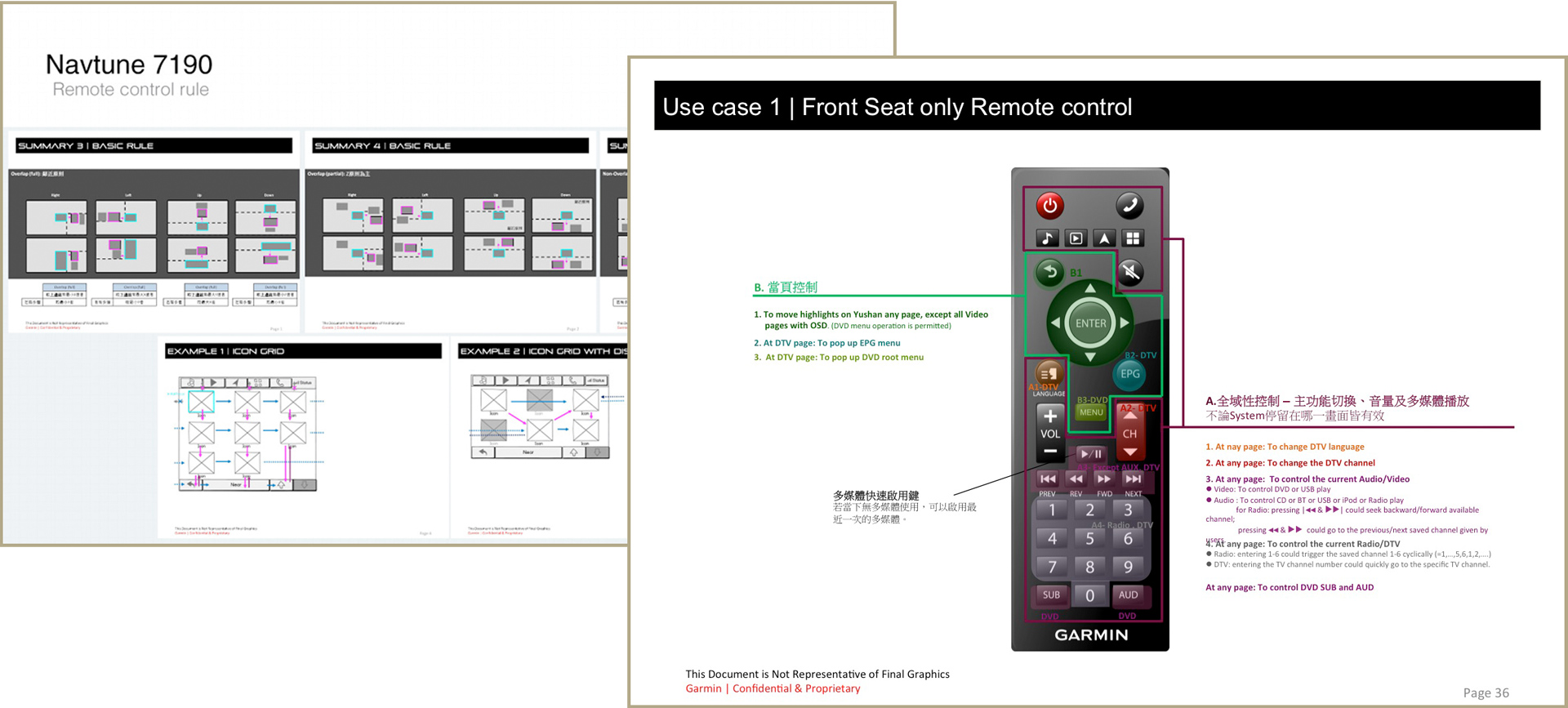
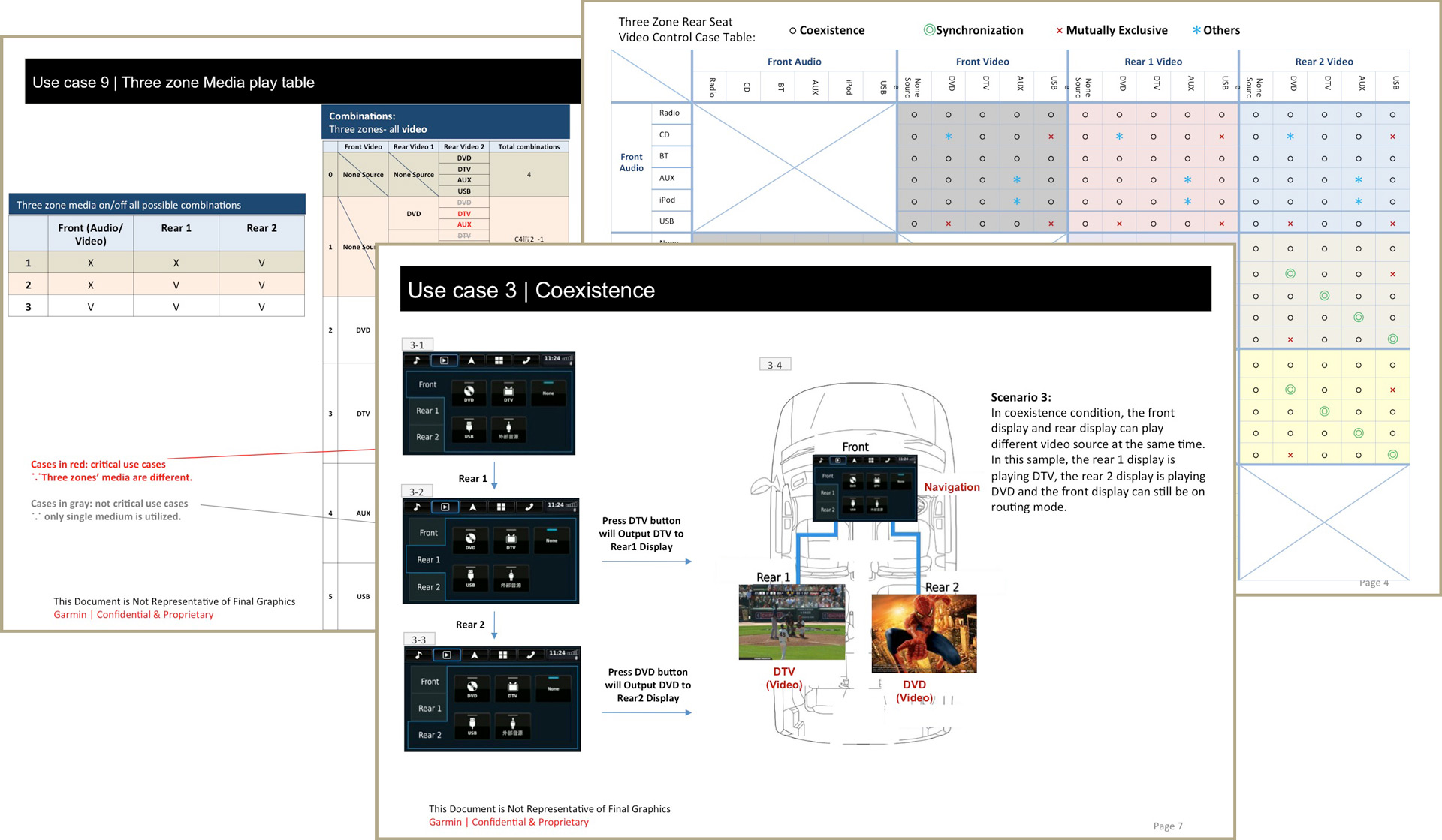
Prototype & Evaluate
Create the prototype
Considering that certain HMI use cases were truly hard to define, I built micro interactive prototypes with iPad and then brought them to users for testing their responses.

Simulate scenarios
Due to the complexity of the three independent multimedia units, I created LO-FI paper UIs for the hardware prototypes to communicate the user scenarios. With previous user feedback, HMI documents were refined and in the same time confirmed with engineers aligned to implementation. Based on those, a demonstration system was made by developers for initial evaluation.
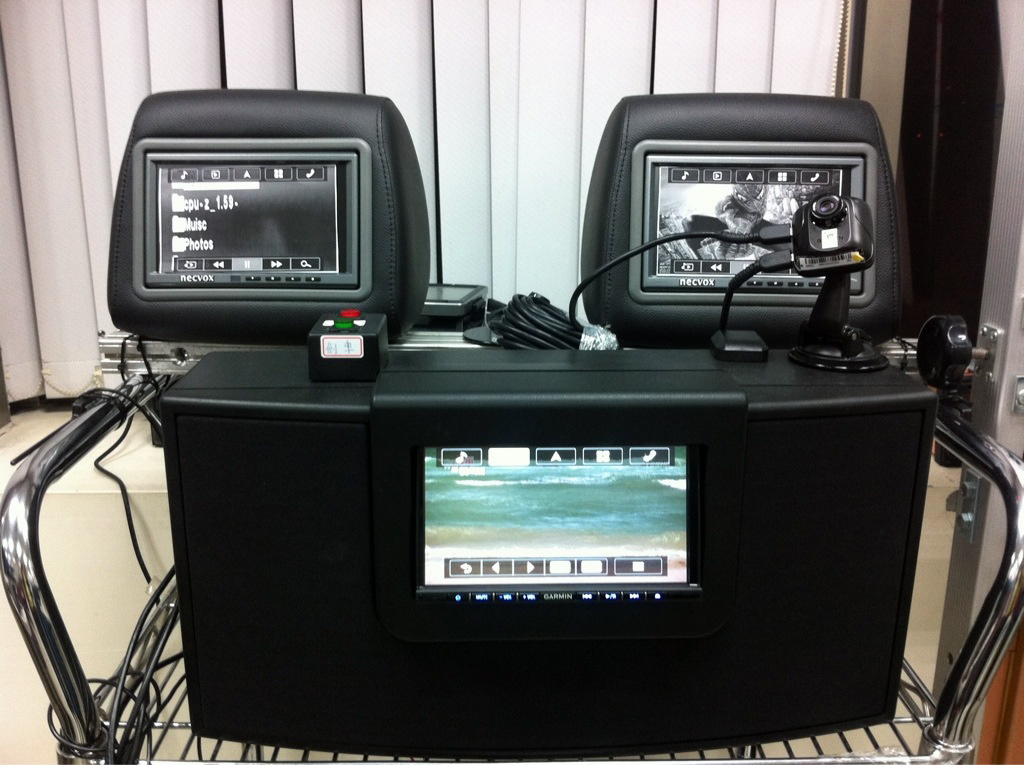
Deliver & Refine
Launch and refine
Our first few launches were held for internal staff as test dummies prior to mass production. Issues were collected and reported to secure Navtune 7190 more stable and reliable. Afterwards, several batches of production were performed and eventually sold in the market.
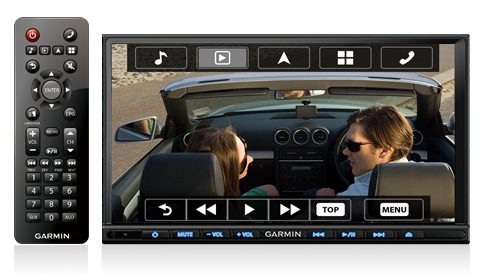
Results and Impacts
User feedback for the Navtune 7190 revealed a successful product, with satisfaction of UI and functionality both rated relatively high at 4.43 out of a maximum 5. The effectiveness of the touch panel was even rated 4.71.
